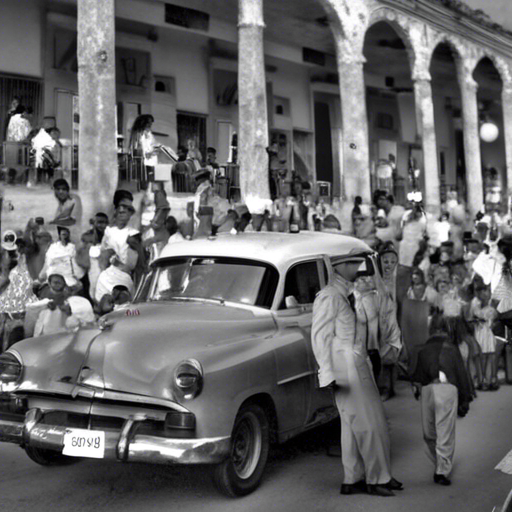unveiling cuba's past: key events that shaped the nation

Unveiling Cuba's Past: Key Events That Shaped the Nation
Welcome to Histoire de Cuba, where we delve into the rich and complex history of this Caribbean nation. Cuba's past is a tapestry woven with significant events that have left indelible marks on its culture, politics, and society. In this article, we will explore the pivotal moments that have shaped Cuba into the country it is today.
The Colonial Era: Spanish Conquest and Rule
The story of Cuba begins with its discovery by Christopher Columbus in 1492. This marked the start of Spanish colonization, which would last for nearly four centuries. The Spanish conquest brought profound changes to the island, including the introduction of European diseases that decimated the indigenous Taíno population.
Key Developments During Spanish Rule
- 1511: Diego Velázquez de Cuéllar establishes the first Spanish settlement in Baracoa.
- 1526: The first African slaves are brought to Cuba, initiating a long history of slavery on the island.
- 1762: British forces capture Havana during the Seven Years' War, only to return it to Spain in exchange for Florida.
Spanish rule left a lasting legacy on Cuba's architecture, language, and religion. The colonial period also saw the rise of sugar plantations, which became the backbone of the Cuban economy.
The Struggle for Independence
By the 19th century, discontent with Spanish rule had grown among Cubans. The desire for independence led to a series of uprisings and wars that would eventually culminate in Cuba's liberation.
The Ten Years' War (1868-1878)
The first major attempt to gain independence was the Ten Years' War, led by Cuban patriot Carlos Manuel de Céspedes. Although the war ended in a stalemate, it set the stage for future struggles.
The War of Independence (1895-1898)
The final push for independence came with the War of Independence, spearheaded by figures like José Martí and Máximo Gómez. The conflict drew international attention, particularly from the United States.
U.S. Involvement and the Spanish-American War
In 1898, the explosion of the USS Maine in Havana Harbor prompted the United States to declare war on Spain. The Spanish-American War resulted in Spain's defeat and the signing of the Treaty of Paris, which granted Cuba its independence.
The Republic Era: A New Beginning
With the end of Spanish rule, Cuba entered a new phase as an independent republic. However, this period was marked by political instability and economic challenges.
Early Republic (1902-1933)
The early years of the republic saw the establishment of a democratic government, but corruption and political turmoil were rampant. The Platt Amendment, which allowed the U.S. to intervene in Cuban affairs, further complicated matters.
The Rise of Batista
In 1933, Fulgencio Batista led a coup that overthrew the government. Batista's rule, which lasted until 1959, was characterized by authoritarianism and close ties with the United States.
The Cuban Revolution
The most transformative event in Cuba's modern history was the Cuban Revolution. Led by Fidel Castro, the revolution sought to overthrow Batista's regime and establish a socialist state.
The Triumph of the Revolution (1959)
On January 1, 1959, Castro's forces successfully ousted Batista. The revolution brought sweeping changes to Cuban society, including land reforms, nationalization of industries, and the establishment of a one-party state.
Cold War Tensions
Cuba's alignment with the Soviet Union during the Cold War led to strained relations with the United States. The most notable event was the Cuban Missile Crisis in 1962, which brought the world to the brink of nuclear war.
Post-Revolution Cuba
Since the revolution, Cuba has faced numerous challenges, including economic hardships and international isolation. However, the country has also made significant strides in areas such as healthcare and education.
Economic Struggles
The collapse of the Soviet Union in 1991 dealt a severe blow to Cuba's economy, leading to the "Special Period" of austerity. Despite these difficulties, Cuba has managed to maintain its socialist system.
Recent Developments
In recent years, Cuba has seen gradual economic reforms and a thawing of relations with the United States. The historic visit of President Barack Obama in 2016 marked a new chapter in U.S.-Cuba relations.
Conclusion
Cuba's history is a testament to the resilience and determination of its people. From colonial rule to revolutionary upheaval, the events that have shaped Cuba continue to influence its present and future. For those interested in exploring Cuba's rich history further, consider visiting this travel guide for more insights.
FAQ
| Question | Answer |
|---|---|
| What was the impact of Spanish colonization on Cuba? | Spanish colonization introduced European diseases, decimated the indigenous population, and established a plantation economy based on sugar and slavery. |
| Who were the key figures in Cuba's War of Independence? | José Martí and Máximo Gómez were pivotal leaders in the struggle for Cuban independence from Spain. |
| What were the main achievements of the Cuban Revolution? | The revolution led to land reforms, nationalization of industries, and significant improvements in healthcare and education. |
| How did the collapse of the Soviet Union affect Cuba? | The collapse led to severe economic hardships during the "Special Period," but Cuba managed to maintain its socialist system. |
For more information on Cuba's history and travel tips, visit this travel resource.
```